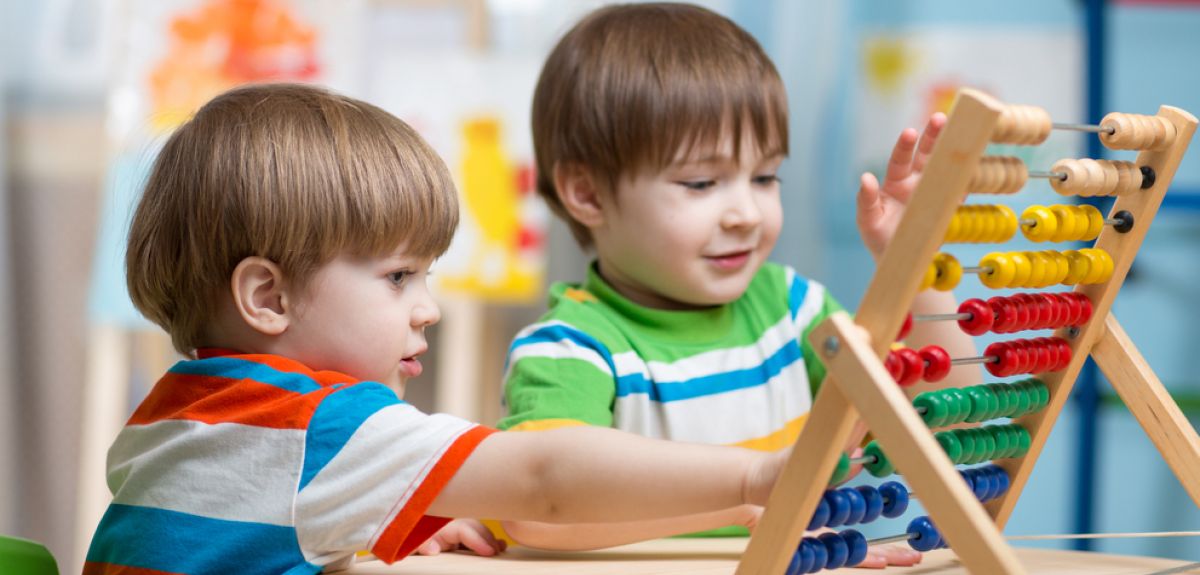
Image credit: Shutterstock
Children with preschool education 'twice as likely to go onto sixth form'
Children of all backgrounds who receive a preschool education are almost twice as likely to go on to sixth form and sit AS levels, according to new Oxford University research.
The findings suggest that far more preschoolers end up taking an academic route into university than peers who had stayed at home when they were under five who did not have the same educational start. In a related study of this sample it was shown that pre-school boosted the chances of bright but disadvantaged children gaining 4 or more AS levels.
Researchers also found, however, that children who did experience stimulating learning activities in the home when they were under five were also more likely to achieve better A-level grades than peers who had not received this support from their parents. From studying parents' responses when children were in the early years and following these children up through primary and secondary school, researchers found that children did better in sixth form if their parents had engaged in activities such as singing songs and nursery rhymes, teaching the alphabet, reading books together, playing with numbers and letters, or going on visits to the library.
A child’s educational experiences at home when they are under five really matter to their later academic success.
Professor Pamela Sammons
The study concludes that a preschool education helps to compensate children with fewer educational experiences at home. This effect continues into secondary school, allowing these students to achieve the academic grades needed to progress to sixth form or college. The preschool effect was four times stronger when the provision was identified as highly effective in teaching early number concepts.
Principal investigator Professor Pamela Sammons from the University of Oxford's Department of Education said: 'Our findings reveal that preschool boosts a child's chances of doing well at school and going onto to take advanced level examinations. This is important because AS and A-levels are a prerequisite for most university and college courses.
'Our research also shows that a child’s educational experiences at home when they are under five really matter to their later academic success. Unfortunately, not all children get the same support from their parents, and for these pupils preschool is especially important. Our findings prove that an investment in preschools pays off, with particular benefits for children from disadvantaged backgrounds.'
Kathy Sylva, Professor of Educational Psychology at Oxford University, who also worked on the research, said: 'We think that high quality early education makes the child a more effective learner – not just better at letters and numbers. High quality education turns the child onto learning.'
The findings are the latest in a series of reports to be published as part of the EPPSE (Effective Preschool, Primary and Secondary Education) project, launched in 1997. Funded by the government's Department for Education, the longitudinal study has followed 3,000 children from the age of three to 18 years to identify the factors that can predict a child's academic success, focusing in particular on any continuing effects of a preschool education and a child's early years home environment.
 New study reveals the COVID-19 pandemic’s impact on other causes of death
New study reveals the COVID-19 pandemic’s impact on other causes of death
 Researchers develop a way to test the ability of red blood cells to deliver oxygen by measuring their shape
Researchers develop a way to test the ability of red blood cells to deliver oxygen by measuring their shape
 New study calls for radical rethink of mental health support for adolescents
New study calls for radical rethink of mental health support for adolescents
 Oxford-led project awarded £2 million to revolutionise clean hydropower energy
Oxford-led project awarded £2 million to revolutionise clean hydropower energy
 Botanists name a beautiful new species of ‘lipstick vine’ discovered in the Philippine rainforest
Botanists name a beautiful new species of ‘lipstick vine’ discovered in the Philippine rainforest
 'Better GSCE grades' for children who had preschool education
'Better GSCE grades' for children who had preschool education
 Why so few poor, white working class boys go on to take A levels
Why so few poor, white working class boys go on to take A levels